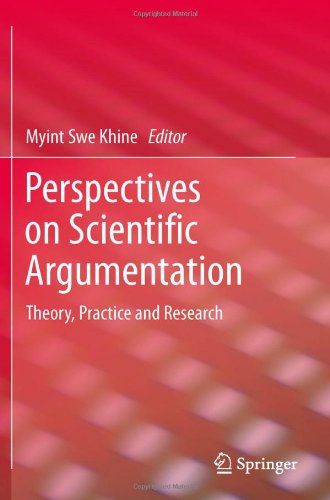

Most ebook files are in PDF format, so you can easily read them using various software such as Foxit Reader or directly on the Google Chrome browser.
Some ebook files are released by publishers in other formats such as .awz, .mobi, .epub, .fb2, etc. You may need to install specific software to read these formats on mobile/PC, such as Calibre.
Please read the tutorial at this link: https://ebookbell.com/faq
We offer FREE conversion to the popular formats you request; however, this may take some time. Therefore, right after payment, please email us, and we will try to provide the service as quickly as possible.
For some exceptional file formats or broken links (if any), please refrain from opening any disputes. Instead, email us first, and we will try to assist within a maximum of 6 hours.
EbookBell Team

4.8
74 reviewsArgumentation—arriving at conclusions on a topic through a process of logical reasoning that includes debate and persuasion— has in recent years emerged as a central topic of discussion among science educators and researchers. There is now a firm and general belief that fostering argumentation in learning activities can develop students’ critical thinking and reasoning skills, and that dialogic and collaborative inquiries are key precursors to an engagement in scientific argumentation. It is also reckoned that argumentation helps students assimilate knowledge and generate complex meaning. The consensus among educators is that involving students in scientific argumentation must play a critical role in the education process itself. Recent analysis of research trends in science education indicates that argumentation is now the most prevalent research topic in the literature. This book attempts to consolidate contemporary thinking and research on the role of scientific argumentation in education.
Perspectives on Scientific Argumentation brings together prominent scholars in the field to share the sum of their knowledge about the place of scientific argumentation in teaching and learning. Chapters explore scientific argumentation as a means of addressing and solving problems in conceptual change, reasoning, knowledge-building and the promotion of scientific literacy. Others interrogate topics such as the importance of language, discursive practice, social interactions and culture in the classroom. The material in this book, which features intervention studies, discourse analyses, classroom-based experiments, anthropological observations, and design-based research, will inform theoretical frameworks and changing pedagogical practices as well as encourage new avenues of research.